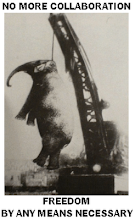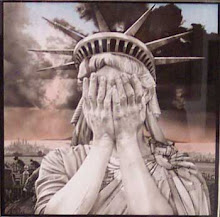Borrowed from DiscovertheNetworks.org:
First proposed in 1966 and named after Columbia University sociologists Richard Andrew Cloward and Frances Fox Piven, the "Cloward-Piven Strategy" seeks to hasten the fall of capitalism by overloading the government bureaucracy with a flood of impossible demands, thus pushing society into crisis and economic collapse.
Inspired by the August 1965 riots in the black district of Watts in Los Angeles (which erupted after police had used batons to subdue a black man suspected of drunk driving), Cloward and Piven published an article titled "The Weight of the Poor: A Strategy to End Poverty" in the May 2, 1966 issue of The Nation. Following its publication, The Nation sold an unprecedented 30,000 reprints. Activists were abuzz over the so-called "crisis strategy" or "Cloward-Piven Strategy," as it came to be called. Many were eager to put it into effect.
In their 1966 article, Cloward and Piven charged that the ruling classes used welfare to weaken the poor; that by providing a social safety net, the rich doused the fires of rebellion. Poor people can advance only when "the rest of society is afraid of them," Cloward told The New York Times on September 27, 1970. Rather than placating the poor with government hand-outs, wrote Cloward and Piven, activists should work to sabotage and destroy the welfare system; the collapse of the welfare state would ignite a political and financial crisis that would rock the nation; poor people would rise in revolt; only then would "the rest of society" accept their demands.
The key to sparking this rebellion would be to expose the inadequacy of the welfare state. Cloward-Piven's early promoters cited radical organizer Saul Alinsky as their inspiration. "Make the enemy live up to their (sic) own book of rules," Alinsky wrote in his 1972 book Rules for Radicals. When pressed to honor every word of every law and statute, every Judaeo-Christian moral tenet, and every implicit promise of the liberal social contract, human agencies inevitably fall short. The system's failure to "live up" to its rule book can then be used to discredit it altogether, and to replace the capitalist "rule book" with a socialist one.
The authors noted that the number of Americans subsisting on welfare -- about 8 million, at the time -- probably represented less than half the number who were technically eligible for full benefits. They proposed a "massive drive to recruit the poor onto the welfare rolls." Cloward and Piven calculated that persuading even a fraction of potential welfare recipients to demand their entitlements would bankrupt the system. The result, they predicted, would be "a profound financial and political crisis" that would unleash "powerful forces … for major economic reform at the national level."
Read the rest here:
Friday
Subscribe to:
Post Comments (Atom)

![[Most Recent Quotes from www.kitco.com]](http://www.kitconet.com/charts/metals/gold/t24_au_en_usoz_2.gif)




























2 comments:
Hmmm. So let me see if I understand this "strategy" correctly. You purposely encourage people to become dependent upon the state. This over-burdening causes the system to collapse. Capitalists are destroyed, and socialism now reins supreme.
Since you've destroyed the people that were paying for the welfare system, and those who are on the system have no skills, talents or motivation to work, who is going to pay for this socialist utopia?
Yeah, that will work out just fine. Lock and load, you right-wing extremist mobsters...
One way or another, we will all pay the price.
And after it all comes crashing down, the blood suckers being too stupid to realize they were duped into helping cause the fall, will put the blame, hatred and retaliation on us blood donors.
But then, socialism seems to work best when the peons distrust and fear each other.
Post a Comment